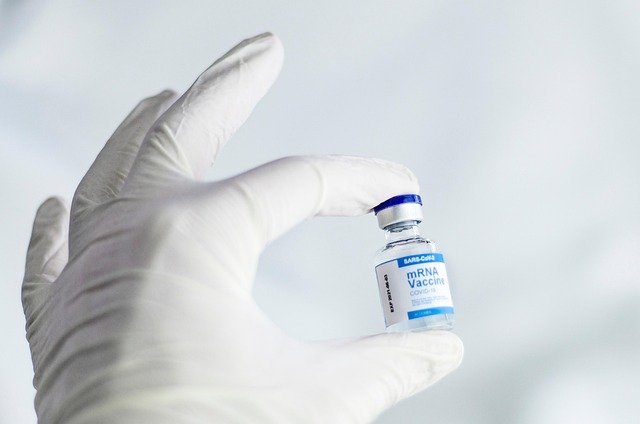Metastatic Breast Cancer 2025: Latest Treatment Developments
In 2025, metastatic breast cancer treatment is evolving faster than ever. New therapies, targeted drugs, and personalized approaches are changing the way doctors manage advanced disease, offering hope for improved outcomes and quality of life. Explore the latest breakthroughs and understand what modern oncology offers patients facing this challenging diagnosis.

The landscape of metastatic breast cancer treatment is evolving rapidly as scientists uncover new molecular pathways and develop more precise therapeutic interventions. For patients diagnosed with advanced-stage breast cancer, these innovations represent significant progress toward more effective and less toxic treatment options. Understanding these emerging approaches helps patients and caregivers make informed decisions about care strategies.
Emerging Targeted Therapies for Metastatic Breast Cancer
Targeted therapies have revolutionized oncology by focusing on specific molecular abnormalities within cancer cells. In metastatic breast cancer, several new targeted agents are showing promise in clinical trials. CDK4/6 inhibitors combined with endocrine therapy have become standard care for hormone receptor-positive metastatic breast cancer, significantly extending progression-free survival. Newer agents targeting HER2-low tumors, previously considered HER2-negative, are expanding treatment options for patients who previously had limited choices. Antibody-drug conjugates represent another breakthrough, delivering chemotherapy directly to cancer cells while sparing healthy tissue. PARP inhibitors continue to demonstrate efficacy in patients with BRCA mutations, offering hope for those with hereditary breast cancer. Additionally, PI3K inhibitors and AKT inhibitors are being investigated for tumors with specific genetic alterations, providing more personalized treatment pathways.
Immunotherapy Breakthroughs for Advanced Breast Cancer
Immunotherapy has transformed treatment paradigms across multiple cancer types, and breast cancer is beginning to benefit from these advances. Checkpoint inhibitors, particularly PD-1 and PD-L1 inhibitors, have shown efficacy in triple-negative metastatic breast cancer when combined with chemotherapy. These agents work by unleashing the immune system to recognize and attack cancer cells. Recent studies demonstrate that patients with high PD-L1 expression experience improved outcomes when treated with immunotherapy combinations. Researchers are also exploring tumor-infiltrating lymphocyte therapy, CAR-T cell therapy adapted for solid tumors, and cancer vaccines designed to stimulate immune responses against breast cancer antigens. While immunotherapy has been more challenging to implement in hormone receptor-positive breast cancer, ongoing trials are investigating combination approaches that may overcome resistance mechanisms and broaden the population of patients who can benefit from these treatments.
Personalized Medicine Approaches in Oncology
Personalized medicine represents a fundamental shift in cancer care, moving away from one-size-fits-all approaches toward treatments tailored to individual tumor characteristics and patient genetics. Comprehensive genomic profiling has become increasingly accessible, allowing oncologists to identify actionable mutations and match patients with targeted therapies. Liquid biopsies enable real-time monitoring of tumor evolution through simple blood tests, detecting resistance mutations before clinical progression becomes apparent. Artificial intelligence and machine learning algorithms are being developed to predict treatment responses and identify optimal therapy sequences. Pharmacogenomic testing helps determine which patients may experience severe side effects from certain chemotherapy agents, allowing dose adjustments or alternative drug selections. Patient-derived xenografts and organoid models provide opportunities to test multiple treatment options in the laboratory before administering them to patients. These personalized approaches maximize treatment effectiveness while minimizing unnecessary toxicity, improving both survival outcomes and quality of life for patients with metastatic breast cancer.
Latest Drug Developments in Metastatic Breast Cancer
The pharmaceutical pipeline for metastatic breast cancer continues to expand with numerous promising agents in various stages of development. Novel antibody-drug conjugates are demonstrating impressive response rates in heavily pretreated patients, offering new options when standard therapies fail. Next-generation CDK inhibitors with improved side effect profiles are entering clinical trials. Oral selective estrogen receptor degraders provide convenient alternatives to injectable formulations while maintaining efficacy. Bispecific antibodies that simultaneously target cancer cells and recruit immune cells are showing early promise in clinical studies. Small molecule inhibitors targeting newly discovered vulnerabilities in cancer cell metabolism and DNA repair mechanisms are advancing through development pipelines. Combination regimens pairing established therapies with novel agents are being carefully studied to identify synergistic effects that enhance treatment outcomes. As these drugs progress through regulatory approval processes, they will provide oncologists with an increasingly sophisticated toolkit for managing metastatic breast cancer across different molecular subtypes and stages of disease progression.
Combination Strategies for Enhanced Treatment Efficacy
Combining multiple therapeutic approaches has emerged as a powerful strategy to overcome cancer resistance mechanisms and improve treatment outcomes. Researchers are investigating rational combinations based on understanding of cancer biology and resistance pathways. Dual HER2 blockade with trastuzumab and pertuzumab, combined with chemotherapy, has become standard care for HER2-positive metastatic breast cancer. Adding CDK4/6 inhibitors to endocrine therapy has dramatically improved outcomes in hormone receptor-positive disease. Combining immunotherapy with chemotherapy, targeted agents, or radiation therapy is being explored to enhance immune system activation. Sequential treatment strategies that alternate between different mechanism classes help prevent resistance development. Maintenance therapy approaches use less intensive regimens after initial response to prolong disease control. Researchers are also investigating optimal timing and sequencing of treatments, recognizing that the order of therapies may significantly impact overall survival. These combination strategies require careful consideration of cumulative toxicities and quality of life impacts, balancing aggressive disease control with tolerability. As understanding of cancer biology deepens, increasingly sophisticated combination approaches will continue to emerge, offering hope for transforming metastatic breast cancer into a chronic manageable condition.
This article is for informational purposes only and should not be considered medical advice. Please consult a qualified healthcare professional for personalized guidance and treatment.
The field of metastatic breast cancer treatment is advancing at an unprecedented pace, with multiple promising therapies reaching patients and many more in development. While challenges remain, the integration of targeted therapies, immunotherapy, and personalized medicine approaches is fundamentally changing the treatment landscape. Patients diagnosed with metastatic breast cancer today have access to more effective and better-tolerated treatments than ever before, with the realistic prospect of living longer, fuller lives. Continued research investment and clinical trial participation will drive further progress, bringing us closer to the ultimate goal of curing metastatic breast cancer.




